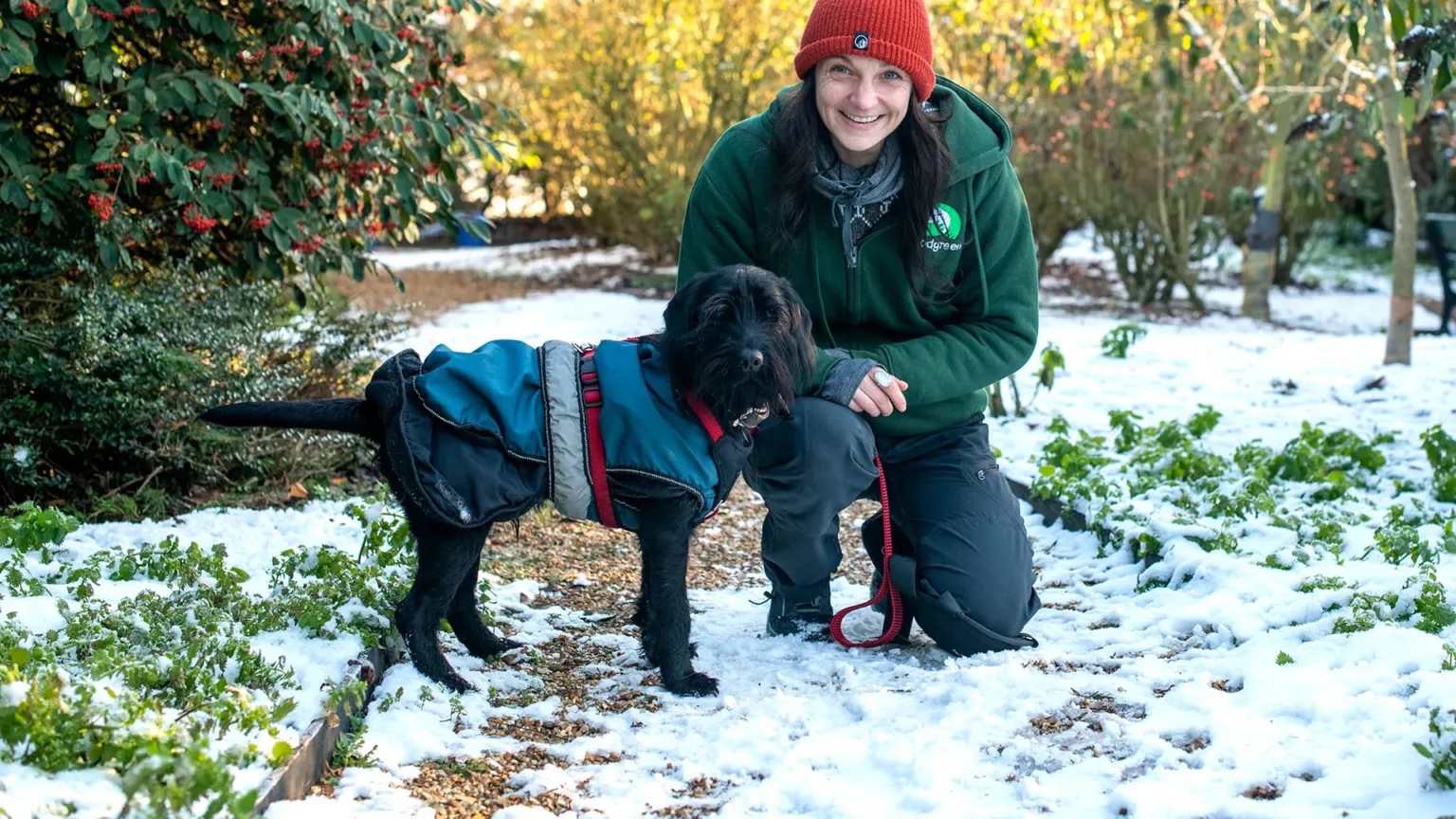Could you star in The Dog House?
If you're looking for a match, filming for the next series starts this Spring.

Cold weather can affect all of us, including our canine companions! Dogs like to be warm, comfortable and happy in winter, so here’s our advice on how to care for your four-legged friend when the weather outside is frightful.
During the freezing winter months, there are plenty of ways to keep ourselves warm and toasty, but what about for our dogs? Good news is, there are lots of things you can do to make sure your canine companion stays warm and comfortable in cold weather.
Naturally, we want to stay inside when it’s grim outdoors so walks tend to be shorter and dogs remain on the lead. That’s why it’s important to be prepared and consider reflective collars, leads and coats for walks, especially if you live somewhere rural.
Britain doesn’t always resemble a winter wonderland, sadly, our winters bring hazardous rain storms and high winds resulting in waterlogged muddy fields. Long-haired dogs often come home filthy and wet meaning the clean-up can often be longer than the walk itself!
Great news is, there are full coverage waterproof dog suits and coats on the market that will help keep your dog somewhat clean and dry on those wet winter walks.
On particularly cold days when Jack Frost has been, we’d recommend staying away from frozen lakes or rivers. If you think your dog will be tempted to run onto the ice, keep them on a lead.
You might find yourself digging out the antifreeze for your car on particularly icy days, just make sure you mop up any spillages and firmly tighten the lids of the bottles. Antifreeze is highly toxic to pets including dogs and they’re attracted to its sweet taste and aroma. If you think your dog may have consumed antifreeze, contact your vet immediately.
Thoroughly wipe your dog’s paws dry when they come inside after a walk. Gritted pathways can cause irritation. If your dog happens to lick their sore pads before their paws are wiped down, they might ingest the salt from the grit, leading to dehydration and in severe cases liver problems.
For more dog advice around winter and the cold weather, visit Ask Woodgreen.